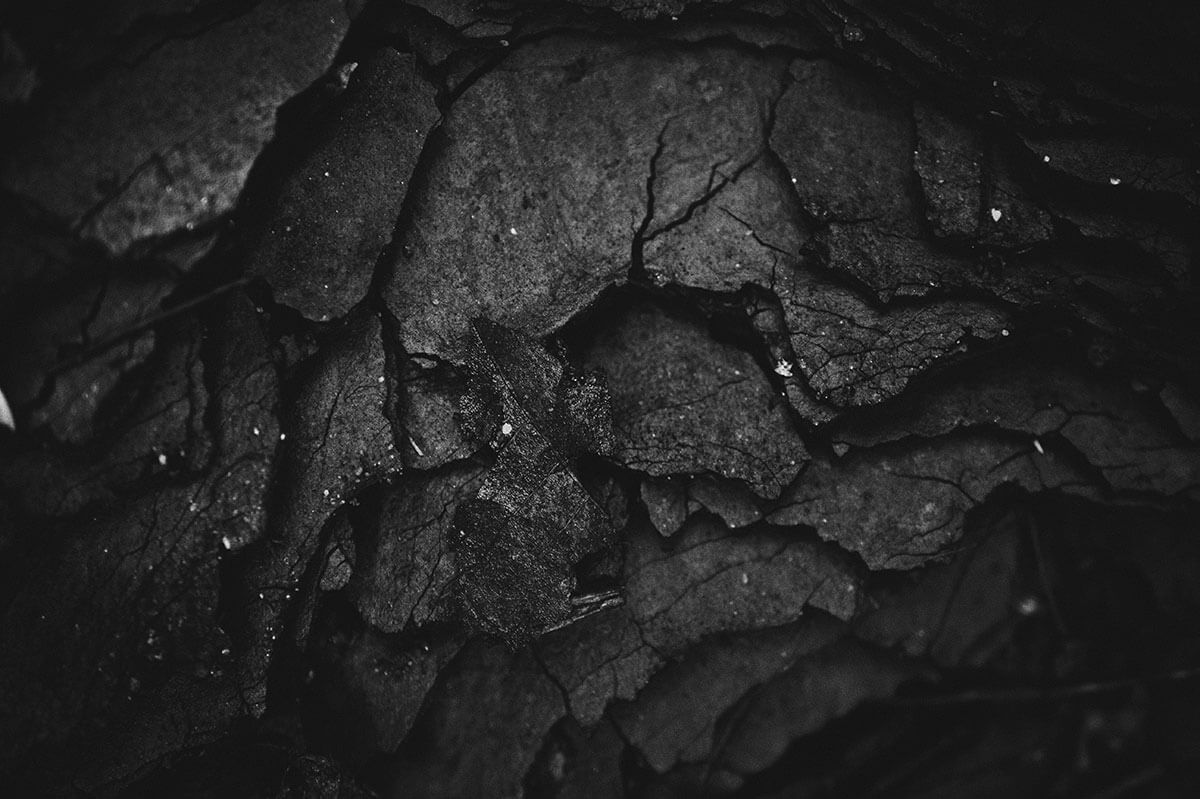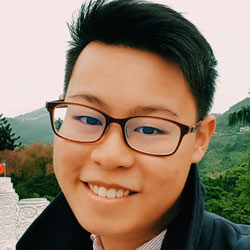
I was excommunicated in the same restaurant I had begun catechesis. Over green curry, my Eastern Orthodox priest, his wife (my godmother), and I talked about recent developments in college. “So this protest at chapel … at the college,” he began, gently, the way white folks do.
Was it about racism? Mm-hm.
But not homosexuality? No, that too.
So it was both? And you were in it. I see.
But why interrupt a church service? I knew you were affirming of homosexuality but — now you’re an advocate. Parishioners are talking, and I wanted to make sure I had the facts before —
And so on. After an hour of ceaseless, impossible asking, my godmother grabbed my hands in hers and pleaded, “Is there any way of being silent about what you already believe? Of not being ... an advocate?”
I wish I’d said something that would resonate with my godmother, who was very old, and very kind, and very white. I wish I’d quoted from Acts, “We cannot help but speak of all we have seen and heard.” But what had I seen or heard? I was two months into this new theology, after eight years of fumbling celibacy. I’d lost nearly all my former friends after the protests. Gone were my circles of respectful white liberals and conservatives who had somehow managed to keep the peace post-2016, as only the privileged can. And gone, too, was Jonny, my ex-best friend, a convert Catholic who’d nudged me to Orthodoxy back in 2015, before he began defending neo-Nazis in Charlottesville. I’d lost so much in the span of three months of becoming affirming and making those beliefs known in my community — my only community in America. I hadn’t seen or heard shit of this Beulah-land to come. What I knew was that I could not stay.
I said as much, in the end, to my godmother. No, I could not not be an advocate. I quoted a Protestant — Martin Luther. “I can do no other,” I’d said, quietly. Father S. nodded and formally disbarred me from Holy Communion.
Communion may not feel like a lot. In some churches, like the evangelical megachurch I grew up in, it was a symbolic gesture, done monthly. A perfunctory ceremony before the sermon starts. But for the Orthodox — a church I had joined willingly in 2017 — Communion is an all-encompassing act, the point of coming to church. By eating a Jesus who was really present in the bread and the wine, we imbibe the resurrection. In a literal sense, it nourishes and fills every corner of the body, drawing that body that much closer to the resurrection of all bodies. Heaven manifest: not a distant future concept but a present, rekindling action. Orthodoxy isn’t always a mystical or spiritual practice, but sometimes a deeply physical one. My body is good, Communion theology informed me. It has been deemed worthy by the living God to participate in holy mysteries, to become and embody Christ on earth. That’s theosis — literally, becoming God, taking on God’s attributes like iron in a forge fire.
What that meant was my body was — is — good, and worth saving. Five years of ex-gay counseling and eight years of white America had never told me that. The jump to affirming theology was much shorter. My body was good. It did not need to be punished or wrung of its desires to be worthy. I could love and be loved — sexually, even, especially — and offer this up to the Trinity in joy. If anything, conservative, old, body-emphatic Orthodoxy is perhaps the only reason I’m affirming today.
A year and a half later, I’m still processing the losses, though. Not only excommunication but the systematic, tacit rallying of a white, Christian, and ostensibly straight community against me. All for changing my beliefs and acting on it. Well, I protested, I hadn’t even had the pleasure of fornication back then. There’s something telling, too, about why I was excommunicated. Not for bringing a boyfriend home. Not for buttsex. Not even for being Side A — my priest had known my beliefs for months. I was excommunicated for going public. In the backlash of an intersectional protest, the vast majority of Holland, Michigan, it turned out, had made their mind known. The church I was part of, the college and its chaplaincy, and a lot of personal friends who inhabited all these spaces at once. You may be yellow, but not angry or loud about it. You may be gay, but God forbid you proclaim it. It was a lesson swiftly learned — I’m glad I learned it quickly. Homophobia and racism were always entwined for me, weaponized by even and synchronized hands.
For a while, I just wanted this rupture to be temporary. I wanted either for them to come around and reaccept me, or — I say this guiltily — I wondered if I wanted to just accept that I was wrong, apologize for my outrage, and be forgiven. White Christians love to forgive. I, a formerly grateful FOB, love to be forgiven. There’s something soothing about reconciliation born of surrender, a coziness to it that I missed. I’d done that so many times back when I apologized for calling out racists. But I couldn’t return to that life. I could not return to a world of respectable people deriding LGBT folks of color or making quiet insinuations about the anchor baby they thought I was. Instead, after six more months of struggle with the deans, chaplains, and trustee members, I and the rest of the original team of organizers passed the baton and left town. I was burnt out and worn down; I left.

If anything, rupture felt almost easy. Like fleeing Sodom. I think I quoted Xu Zhimo as I left: “Quietly I leave, just as quietly as I came.” I did research, went home to my family, ate deeply of ancestral histories, and came back to Michigan refreshed. But still no Communion. I’d “stolen” Communion from a Greek Orthodox church I visited sporadically, but there, I had told almost no one about my excommunication, had not mentioned my gayness. But beyond that, still a division. An Uncommunion. And it breaks me to think about that. I have to remember that I’m not alone in this. Athanasius was excommunicated thrice for defending the idea that a single God could be three mystical persons bound up in each other. We call him a champion of Orthodoxy, so go figure. But even then, the break isn’t easy. It doesn’t stop hurting.
I dislike schism. I don’t enjoy polemics for the sake of polemics — particularly in the church. Schism in the Orthodox tradition is a thing to be grieved, even if it’s unavoidable. So, too, here. I don’t repent of doing the things that got me kicked out. I don’t know that I want in good conscience to plant roots in the Orthodox church of the city I’m living in now. But my heart is whole. Before 2017, schism had only been internalized — I was at war with myself, navigating all these little intersections quietly and softly, in ways convenient to straight white folk. Respectability makes them suffer in silence, and so they want everyone else to nurse their wounds quiet like they do. If anything, my tortured conscience made me a desirable friend: a badge of their tolerance, their open-mindedness, their Christian charity. Schism had bypassed my church and Christian community; it was all locked inside me.
The schism is externalized now. It’s on them. I have set my heart — whole and full of fire — on the altar and offered it up to the Lord. Illuminate the simple unity of my five senses, we pray, each morning after Communion. A quiet longing for wholeness. Very Daoist. I’m not sure that I’m ready to forgive those communities that cut me out, the ones that, let’s be real, I, too, cut off. I’m not sure what healthy friendship breakups look like. I still look up the newsletters from church, see who’s getting wed, eating well, what feasts are on the calendar. I still check for news of my ex-best friend, who now defends Nazis. My friends went to his wedding, then his baby shower. I see the pictures. If I’m honest, there are times when the fires of Sodom seem like the only way to purge the heteronormativity and racism and imperialism of Christian America. Perhaps that is indeed what is needed. Other times, I sit for hours missing lost friends, priests, godmothers. But the living sacrifice I can offer the Lord is whole. Whole-burnt, as the Greek reminds us, not cut apart, not severed at the bone. Whole. No schism. For this, at least, I rejoice.
I still keep my icons in my room. St. Cyril, my patron with his gray wizard’s robes, gazes out over my reading, my internet searches, the men I bring home. When I’m not too lazy, I pray Compline, letting the chant swell over me like river water before the incense alarms the smoke detector. Sometimes, I don’t miss the world I left; sometimes, I do. Perhaps this reflection is nothing but another of those specious letters written to exes. But I’ve written this less to those who left me, and more in praise of the light I have still, undimmed. Theosis has not ceased for me. Sometimes, the September sun catches the gilding of my Theotokos icon in just the right angle and sets ablaze the whole of my room, the folds of my skin. Yellow, such glorious yellow. Gold, such splendid gold.

Joshua Chun Wah Kam regularly speaks out of turn about gay shit, shuttling between Malaysia and America, his two homes. He writes when he can, drinks when he shouldn’t, and bakes pies when the oven works. He’s currently posted in fair Ann Arbor, MI, studying the intersections between sexuality, ritual, and mysticism in Southeast Asia. Joshua has recently learned he’s the winner of the Epigram Books Fiction Prize, a Singapore-based pan-Southeast Asian prize for new authors. His novel, “How the Green Man Saved Pahang, and Possibly the World”, will be published this July.